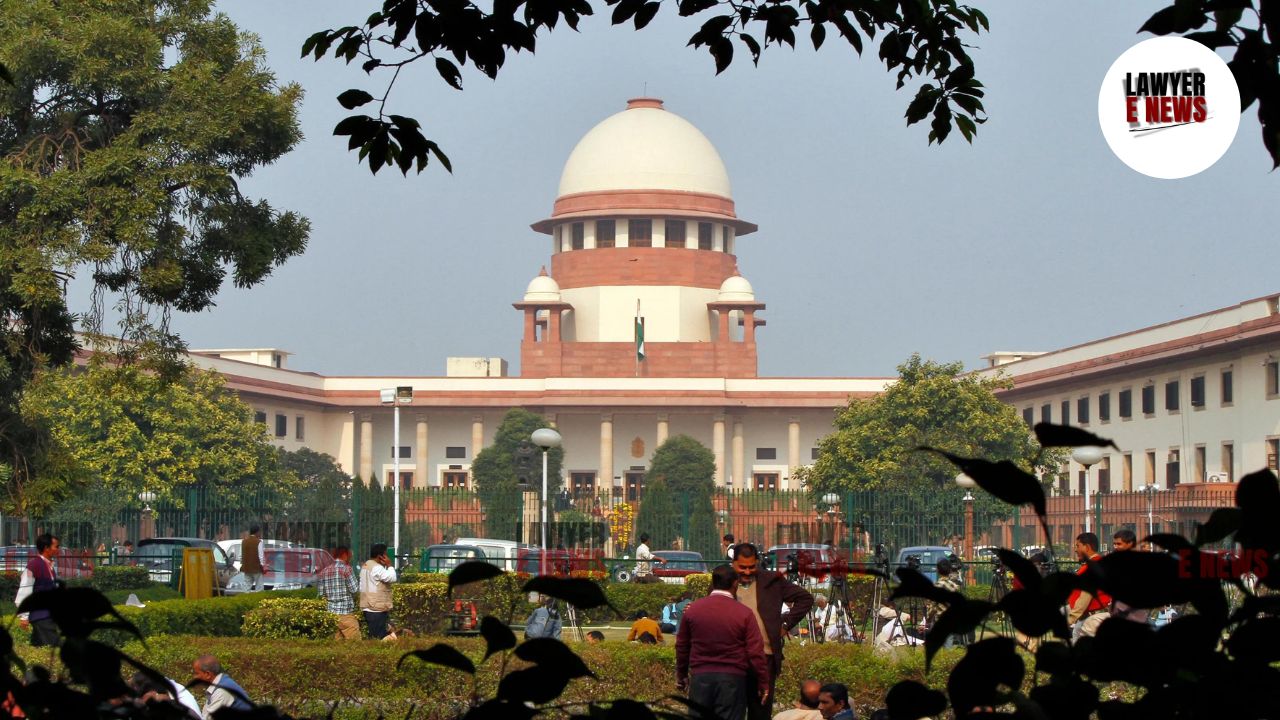-
by Admin
15 February 2026 5:35 AM



"Mechanism of Royalty Calculation Needs Review to Address Compounding Anomalies," Supreme Court Directs Union Government. On November 7, 2024, the Supreme Court of India ruled on Kirloskar Ferrous Industries Limited & Anr. v. Union of India & Ors., calling for a government-led reassessment of the royalty calculation mechanism under the Mineral (Other than Atomic and Hydrocarbons Energy Minerals) Concession Rules, 2016 (MCR) and Mineral Conservation and Development Rules, 2017 (MCDR). The court underscored concerns about the compounding effect caused by these rules, where royalties and additional contributions were being factored multiple times, increasing costs for mining leaseholders.
Kirloskar Ferrous Industries Limited, a mining leaseholder extracting iron ore, filed a writ petition under Article 32 of the Indian Constitution. The petition challenged the validity of explanations under Rule 38 of the MCR, 2016, and Rule 45(8)(a) of the MCDR, 2017. These explanations mandated that the “sale value” of minerals include royalties and contributions to the District Mineral Foundation (DMF) and National Mineral Exploration Trust (NMET), thus creating a “cascading effect” or “royalty on royalty” that increased costs substantially.
The petitioners argued this method lacked reasonable justification and was arbitrary under Article 14 of the Constitution. They contended that the compounding of royalties unfairly inflated the average sale price (ASP), disproportionately burdening non-coal minerals while coal royalties were calculated separately, excluding prior payments.
Compounding of Royalties on Sale Value: The petitioners argued that the formula mandated by the MCR, 2016, and MCDR, 2017 led to a scenario where royalty, DMF, and NMET contributions were added to the sale value, and this total was used as a basis for calculating royalties for subsequent periods. They claimed that the formula violated fair calculation principles by imposing royalty on past royalty payments, essentially leading to a double-charging effect each month.
Differential Treatment for Coal: Petitioners emphasized that the computation mechanism was different for coal, where prior royalty and DMF contributions were excluded. The petitioners argued this inconsistency violated Article 14 by treating coal and other minerals differently without a clear rationale.
Government’s Position: Counsel for the Union of India argued that royalty policies were part of an economic strategy within the government’s discretionary powers. They noted the ASP calculation followed a complex methodology designed to balance state revenue with market realities. The government also highlighted that policy matters, especially economic ones, are typically not subject to judicial review unless they are explicitly arbitrary or violate statutory rights.
The Supreme Court found that while royalty computation is within the government’s policy domain, the present rules displayed a problematic compounding effect that warranted scrutiny. The Court emphasized several legal principles and past precedents:
Judicial Review of Economic Policy: Relying on Balco Employees’ Union v. Union of India, the Court stressed that economic policies should be respected unless they breach the Constitution. Here, however, the Court noted that the rules could be viewed as disproportionately burdening certain mining leaseholders due to the cascading royalty effect.
Manifest Arbitrariness and Reasonable Classification: The Court referred to Manish Kumar v. Union of India to affirm that manifest arbitrariness can invalidate a policy. In this case, the Court suggested that the differential treatment of coal compared to other minerals lacked a clear legislative basis, potentially contravening Article 14.
Government Responsibility to Address Anomalies: The Court highlighted the government’s responsibility to address inconsistencies within its policy framework. Referring to the government’s own 2022 public consultation on amending the royalty calculation mechanism, the Court noted that authorities had previously acknowledged the compounding issue.
The Supreme Court refrained from declaring the explanations invalid, acknowledging that the government was actively considering amendments. However, it mandated the Union to expedite this process, directing that the public consultation conclude within two months, with a final policy decision on adjusting the royalty computation formula.
"The respondents cannot indefinitely prolong the decision-making process on compounding royalties under the pretext of ongoing consultations. This delay impacts leaseholders financially and could lead to a serious constitutional challenge if not resolved."
The Supreme Court’s ruling in Kirloskar Ferrous Industries Limited v. Union of India reflects a cautious approach, urging the government to address the royalty compounding issue while respecting its economic policy discretion. This decision reinforces the importance of policy consistency and economic equity, especially in the extraction industries, and sets a timeline for the government to resolve discrepancies.
Date of Decision: November 7, 2024
